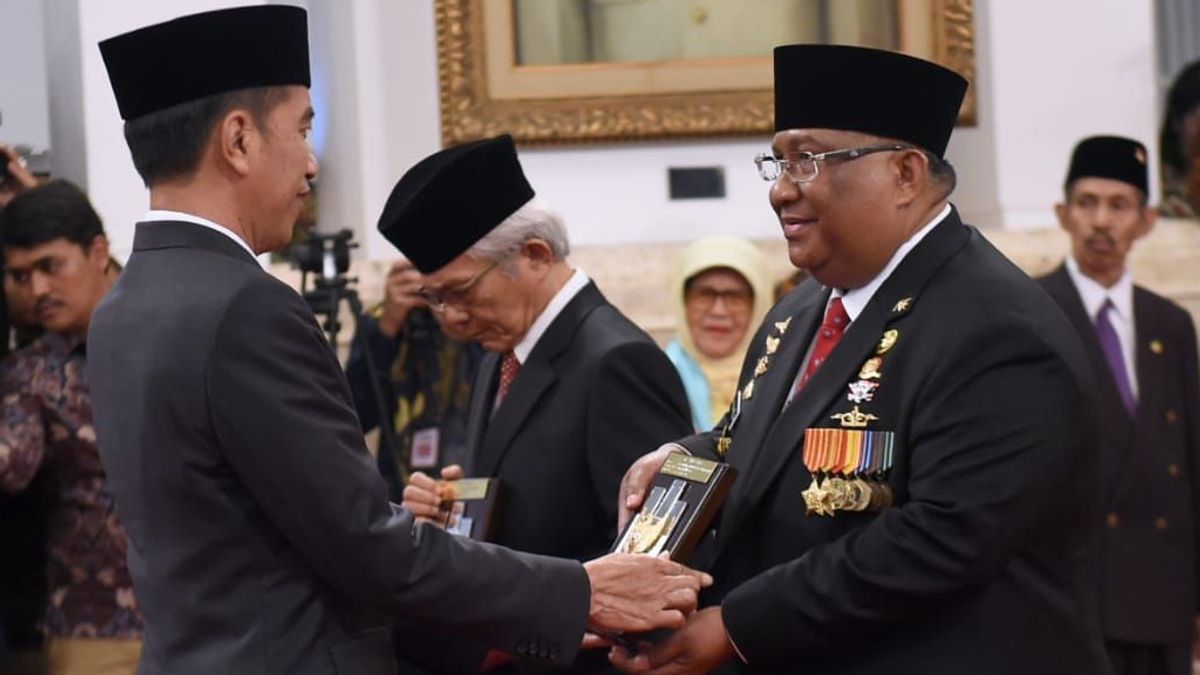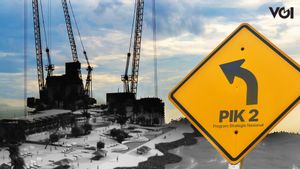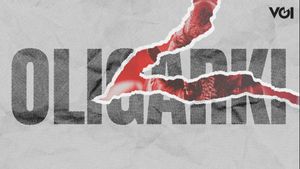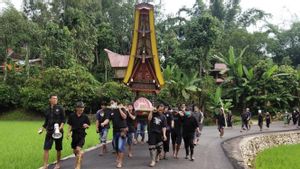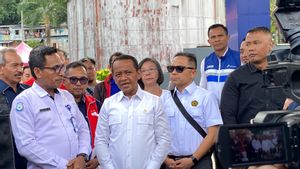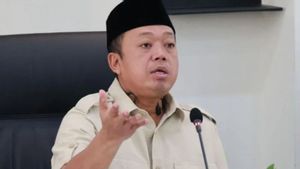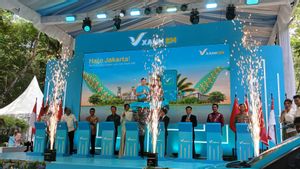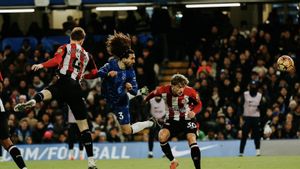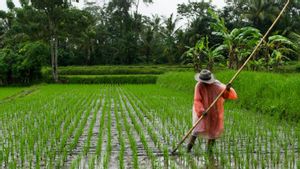Indonesia is a country rich in heroes. Be proud of us of that. However, regarding the awarding of the title of national hero, this nation seems to need a lot to improve. The dark side of the figures who received the title, the weakness of the system, and the thickness of politicization in receiving the title are notes that should be highlighted. This is the final article in VOI's signature Series on "Becoming a National Hero."
Indonesia has a mechanism for awarding the title of national hero. This mechanism is regulated in Law (UU) Number 20 of 2009 concerning the Title of Service and Honor. These rules regulate the mechanism for applying for the title of national hero, including the various conditions that must be fulfilled by a name to be declared a national hero.
"In Article 25 and Article 26, there are two (classification) requirements, namely general and specific requirements," said Director General of Heroism, Pioneering, Solidarity and Social Restoration (K2RS) Ministry of Social Affairs (Kemensos) Bambang Sugeng when we contacted, Tuesday 19 November .
Referring to Law 20/2009, which is classified as a general condition, among which are potential heroes who are Indonesian citizens or people who are fighting in an area that is now the territory of the Republic of Indonesia. The name must also have moral integrity and exemplary, be of service to the nation and state, be of good behavior, and be loyal and not betray the nation and state. Another condition is that the name cannot be involved in a crime with a minimum sentence of five years.
While the special requirements, the Law mandates a number of conditions, namely:
1. Have led and carried out armed struggles or political struggles or struggles in other fields to achieve, seize, defend and fill independence and realize national unity and integrity;
2. Never give up on the enemy in struggle;
3. Doing service and struggle that lasts almost his whole life and exceeds the task he is assigned;
4. Have given birth to big ideas or thoughts that can support the development of the nation and state;
5. Have produced major works that are beneficial to the welfare of the wider community or increase the dignity of the nation;
6. has a consistent spirit and high national spirit;
7. And / or carry out struggles that have a broad reach and have a national impact.
Law 20/2009
Based on Law 20/2009, the mechanism for applying for the title of national hero can be initiated by a person, group, or institution. However, there is a line of mechanisms that must be followed. The first is submitting the names of figures to the local government. The submission must be accompanied by the results of a study and a public examination degree involving historians, academics, and the knowledgeable public.
The results of the study and the public examination title must be written into a journal. Later, the journal will be submitted to the Research and Study Team for Regional Degrees (TP2GD) to be studied. If it passes the TP2GD study, then the journal can be submitted to the regional government. Furthermore, the local government will bring the proposal to the Ministry of Social Affairs.
"It must be reviewed by them first. After being reviewed by TP2GD and all files, including photos, the documents of the struggle were verified by TP2GD, then proposed to the center by the governor to the Ministry of Social Affairs," said Bambang.
Politicization
Despite having a legal umbrella mechanism, the determination of the title of national hero in Indonesia is often filled with political interests. At the end of the mechanism, the decision to determine the title of national hero will be determined by the president through discussions with the Title Council.
Making the president the prerogative of determining the title of national hero is a model that has been going on for a long time. During the reign of Sukarno, the proclaimer gave the title of national hero to 36 figures. Some of them are considered problematic. Sutan Sjahrir, for example. The title for Sjahrir is the fastest awarding of titles, namely one day after Sjahrir died.
In addition, the awarding of Sjahrir's title was considered political. Two years before Sjahrir's death, 1964 to be exact, was the year Sukarno had sold the title of national hero at most. At least ten figures were awarded the title of national hero. The composition is diverse. Two from the TNI, two from Nahdlatul Ulama (NU), two from Muhammadiyah, and three from women. And Sjahrir is a representation of Nasakom, the communist element at that time.
Soeharto era too. Some titles are awarded by obscure procedures. The author of the book Proklamasi: A Reconstruction, Osa Kurniawan Ilham, highlighted the politics of giving the title of national hero during the Soeharto era. About the title of hero to Siti Hartinah (Bu Tien), for example.
"There is one political case too. Awarding the title of national hero to Mrs. Tien Soeharto. What services (Bu Tien) did? Because she accompanied Suharto?" said Osa to VOI, Wednesday, November 20.
During the Soeharto era, the awarding of the title of hero was also highlighted by a number of figures. Basuki Rahmat, for example. The story of Basuki's involvement in the publication of Supersemar, which was the step in Suharto's overthrow of Sukarno, brought into question his heroic title.
Renewal of the legal umbrella
Chairman of Commission VIII DPR Yandri Susanto agrees that there are many problems in awarding the title of national hero. According to him, if there must be improvement, it must be done in the mechanism of assessing the names of potential title recipients.
"But if there is a national hero, there is a lawsuit in the community, questioning his credibility as a national hero, of course we ask the Minister of Social Affairs not to rush into becoming a national hero," said Yandri when VOI met at the DPR Building, Senayan, Central Jakarta some time ago. .
Meanwhile, a progressive breakthrough was thrown by Osa. According to him, rather than the title of national hero, the symbol of respect for heroes is better replaced with a service symbol. "In the present context, honors are more contextual than the title of hero," said Osa.
According to him, since the beginning, the title of national hero has been problematic due to the thick subjectivity and politicization of the rulers. "I think the state still has a debt by not giving the title of hero to all members of BPUPK and PPKI," he said.
The fundamental difference between national hero titles and honors lies in their management. The title of national hero is administered by the Ministry of Social Affairs, while the service mark is administered by the Ministry of State Secretariat (Kemensetneg).
"The title of hero is given to meritorious figures who have died. Meanwhile, more honors are given to figures who are still alive and have merits and deserve to be given merit," said historian Kuncoro Hadi to VOI, Friday, November 22.
Whatever the breakthrough, the various historical records that cover a number of names of national heroes must be noted. Law 20/2009 seems to have to be addressed. By adding more specific and substantial conditions for the awarding of honors, whatever the form may be.
National heroes or recipients of honors must then be free from issues of corruption, human rights (HAM), or past manipulations. "I think it is important (specific requirements) so that it is not debatable in society or subjectivity plays on it," said Yandri.
Follow this edition of VOI's signature series: "Becoming a National Hero"
The English, Chinese, Japanese, Arabic, and French versions are automatically generated by the AI. So there may still be inaccuracies in translating, please always see Indonesian as our main language. (system supported by DigitalSiber.id)
